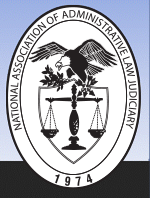First Page
443
Last Page
480
Abstract
A particularly prevalent type of claims in post-Boumediene cases are Bivens claims by detainees. One such case is Hamad v. Gates. Hamad represents a typical claim made by such detainees, and is the focus of this note. In Hamad, the Ninth Circuit held that a statute that had previously thought to be entirely overruled by Boumediene actually survived. This statute, 28 U.S.C. § 2241(e), stemmed from years of back-and-forth debate between the Supreme Court and Congress. The result of this conflict is still unsettled. The main issue is whether the Court’s primary concern in overruling the jurisdiction-stripping statutes of Congress was in a separation-of-powers and a muscular enforcement of judicial protections, or a more limited, Suspension-Clause specific analysis. In Part II, this note will examine the historical background of the Military Commissions, the Detainee Treatment Act, and the Military Commissions Act. It will also provide the Supreme Court’s responses to each of these, illustrating how each time the Court enforced its own jurisdiction to hear cases at Guantanamo finally culminated in the full application of the Suspension Clause in Boumediene. It will also explain the relevant post-Boumediene case law, as well as Bivens actions and how detainees attempt to assert such actions for money damages against the government. These actions are significant because if such a Bivens claim is recognized, some constitutional protection that has been violated would also have to be recognized. Part III of this note will examine the facts leading up to Hamad’s claim, including his allegations of cruel, inhumane, and degrading treatment (CIDT), and his subsequent release without any charge. Part IV will examine the District Court for the Western District of Washington’s decision, which has been noted as the only court to hold that a detainee had a Bivens claim. Part V will examine the Ninth Circuit’s holding that §2241(e)(2) was not overruled in Boumediene, including its application of the severability doctrine, as well as the holding that Bivens claims are never constitutionally required. Part VI will examine the legal and social impact of Bivens claims’ denials. Finally, I will briefly conclude that courts should be more receptive towards acknowledging money damages for detainees as a way of protecting Americans from abuses by the government.
Recommended Citation
Paul Blenz,
Hamad v. Gates and the Continuing Interpretation of
Boumediene: A Note on 732 F.3d 990 (9th Cir. 2013),
35 J. Nat’l Ass’n Admin. L. Judiciary
443
(2016)
Available at:
https://digitalcommons.pepperdine.edu/naalj/vol35/iss2/6

